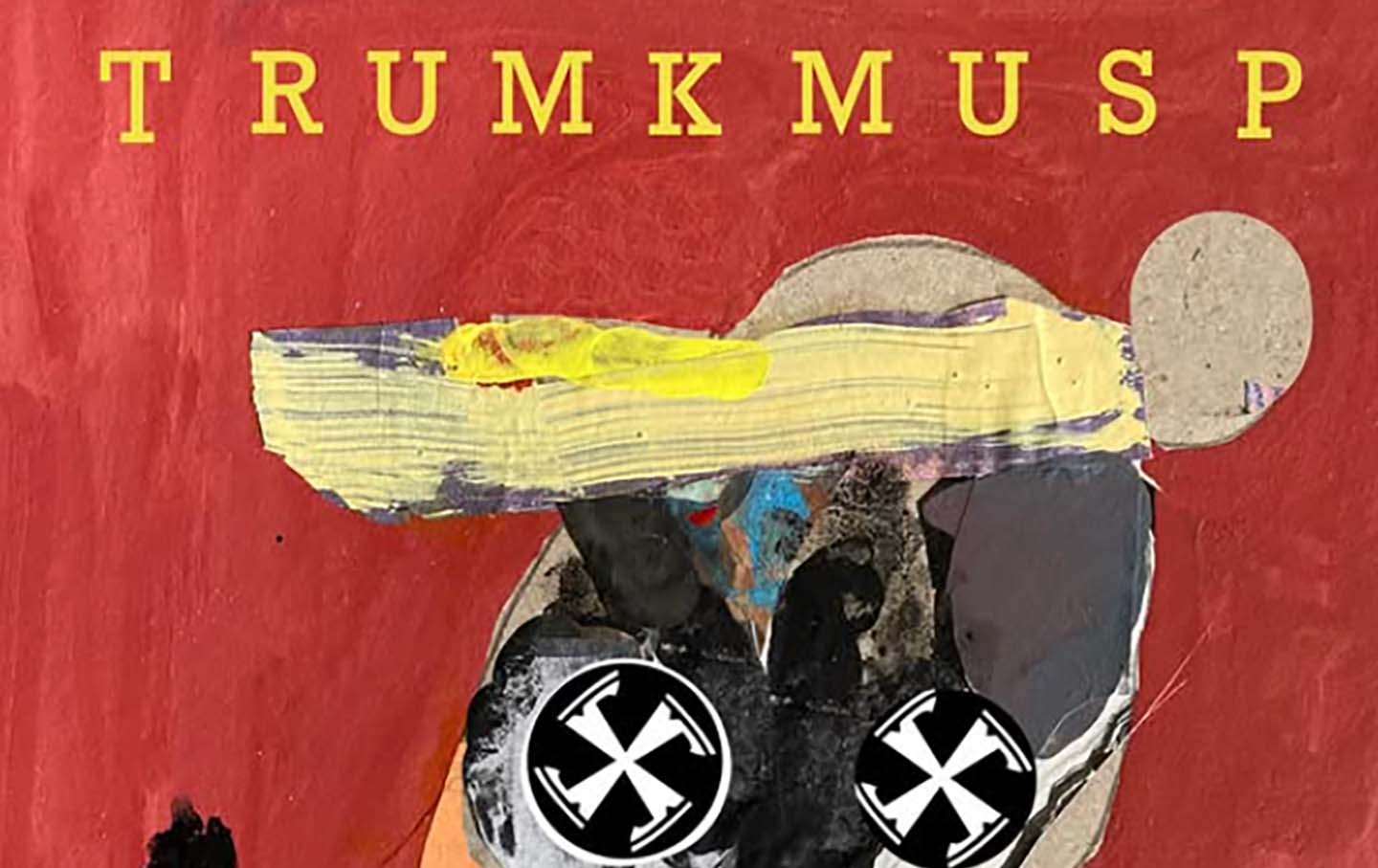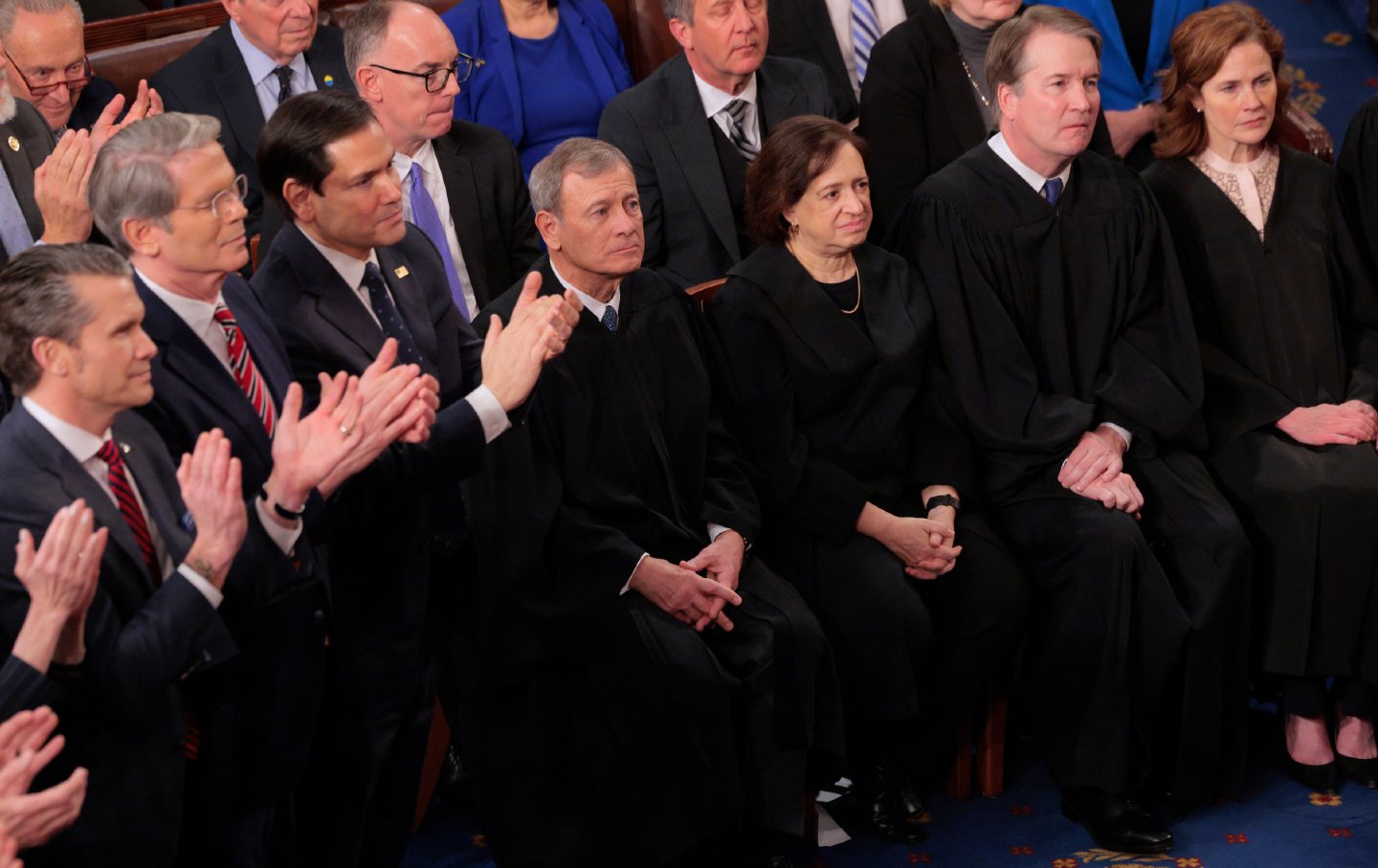Nikki Haley Needs a History Lesson
The GOP candidate’s answer to a question on what caused the Civil War was missing any recognition of the obvious: the legacy of American slavery.

Welcome to the Nikki Haley campaign’s white night of the soul. At a campaign event in Berlin, N.H., on Wednesday, an audience member rose to ask a question any competent high school junior could ace: What caused the Civil War? Haley, the former governor of South Carolina with a decidedly equivocal record on race and civil rights, instead offered up a garbled array of Lost Cause talking points, like so: “Well, don’t come with an easy question or anything. I mean, I think the cause of the Civil War was basically how government was going to run the freedoms and what people could and couldn’t do.”
When her questioner understandably sought clarification, she prompted to dig herself a still deeper hole, in yet greater billowing clouds of libertarian abstraction that never once alighted on the correct answer, “slavery”:
I think it always comes down to the role of government and what the rights of the people are. And I will always stand by the fact that I think government was intended to secure the rights and freedoms of the people. Government doesn’t need to tell you how to live your life. They need to make sure that you have freedom. We need to have capitalism. We need to have economic freedom. We need to make sure that we do all things so that individuals have the liberties so that they can have freedom of speech, freedom of religion, freedom to do or be anything they want to be without government getting in the way.
By this time, the beleaguered audience member spoke for much of the rest of the country as he announced that he found it “astonishing” that nowhere in this Mad Libs assortment of Hayekian bromides had the candidate managed to mention slavery. Then came Haley’s dumbfounding rejoinder: “What do you want me to say about slavery?”
Where to begin? Haley, like the other non-white candidate in the 2024 GOP presidential field, Vivek Ramaswamy, has tirelessly flogged her personal successive narrative as Exhibit A in the case that America has long transcended the bitter divisions of race, caste, and class. Indeed, Haley gave an admiring blurb to Ramaswamy’s latest book assailing the excesses of the woke, Capitalist Punishment—an awkward look for a rival who announced in a recent GOP debate that listening to Ramaswamy always makes her feel dumber.
Haley also frequently touts her 2015 decision, in the wake of the racist massacre carried out in Charleston by Dylann Roof, to take down the Confederate flag in front of the South Carolina capitol as another example of her enlightened post-racial sensibility. Yet, during her 2010 election campaign, she gave an interview to the Sons of Confederate Veterans pledging to school critics of the flag “about the heritage and how this is not something that is racist.” For good measure, she said she’d support a Confederate History Month. And in the immediate aftermath of the Roof slayings, she continued to say she was disinclined to revisit the issue of the flag. It was only when several national Republicans, such as Mitt Romney and Jeb Bush, called for the flag to be mothballed after damning photos of Roof brandishing the Stars and Bars became public, that Haley finally relented. And even long after that decision, she continued peddling Lost Cause talking points to right-wing audiences, and taking swipes at a meddlesome press. In a 2019 interview with Glenn Beck, she said, “Here is this guy that comes out with this manifesto, holding the Confederate flag, and had just hijacked everything that people thought of.… People saw it as service and sacrifice and heritage, but once he did that there was no way to overcome it, and the national media came in droves.”
After Wednesday’s face-plant, Haley again went abruptly into scapegoating mode. In a New Hampshire radio interview, she walked back her comments, saying that “of course” the Civil War was about slavery, no doubt confident that the same national media that had allegedly badgered her into parting ways with the Confederate flag would never stir itself to voice the simple follow-up question, “Why didn’t you say so, then?”
She then proceeded to denounce her questioner as a “Democratic plant,” an especially risible suggestion since, for all the breathless talk in the punditsphere about a Haley primary surge, she’s polling at around 11 percent in national GOP surveys, more than 50 points behind front-runner Donald Trump. Any Democratic operative seeking to kneecap the Haley campaign, in other words, should seek work elsewhere, as the Haley campaign has already done the bulk of the relevant work in advance. Indeed, one collateral casualty of Haley’s botched reply was a stupendously credulous and ill-timed New York Times profile of Haley in campaign mode, marveling at her cautious and “disciplined” appeals to the rapidly disappearing Trump-skeptical GOP electorate.
Amid such pettifogging and blame shifting, it’s easy to lose track of the larger lesson of Haley’s Wednesday performance: It’s now commonplace in mainstream GOP discourse to flirt with and openly endorse white supremacist revisionism. This had, of course, been the object lesson in Trump’s pronouncement that “there were fine people on both sides” of the infamous and deadly 2017 Charlottesville Unite the Right rally. But more notionally respectable right-wing leaders have long indulged the same ugly tendencies, from George H.W. Bush’s Willie Horton ads to the 2000 whisper campaign by Bush fils—in South Carolina, as it happens—about John McCain fathering an out-of-wedlock non-white child (the child was in fact McCain’s adoptive daughter, a native of Bangladesh). The chief thing that made Haley’s remarks a liability was where she delivered them, in one of the northernmost states of the union. Had she coughed up the same discredited description of the Civil War’s roots in the hardy anti-government crusade for white property-owning “freedom” in Iowa, which has lately veered so far to the right that it’s known as the Florida of the Midwest, the ensuing backlash would have been far less consequential. (I write this more in sorrow than in anger, as an all-but-native son of the Hawkeye State.)
Indeed, the long-running right-wing agitprop campaign against the specter of critical race theory and other racially charged topics in school curricula is a bid to ensure that the Haley vision of the nation’s sectional conflict once more becomes the standard textbook account. The ideological endpoint of such efforts is emerging in the anti-woke vanguard state of Florida, where a new DeSantis-approved curriculum dwells on the benefits of slavery to the enslaved.
In this climate of perpetually indulged and exploited white grievance, Nikki Haley clearly assumed that the same Lost Cause narrative she has long peddled for political gain would be greeted as unobjectionable, and indeed sagacious. Michael Kinsely long ago noted that a gaffe occurs when politicians inadvertently say what they actually think. The corollary is that a scandal is likewise never really a question of a stray utterance—or of the baroque exercises in retroactive damage control that always follow such moments of public embarrassment. No, as Nikki Haley has once more reminded us, the scandal resides in the sort of pandering and bigoted bullshit that our opportunistic political class feels it’s empowered to get away with.
Hold the powerful to account by supporting The Nation
The chaos and cruelty of the Trump administration reaches new lows each week.
Trump’s catastrophic “Liberation Day” has wreaked havoc on the world economy and set up yet another constitutional crisis at home. Plainclothes officers continue to abduct university students off the streets. So-called “enemy aliens” are flown abroad to a mega prison against the orders of the courts. And Signalgate promises to be the first of many incompetence scandals that expose the brutal violence at the core of the American empire.
At a time when elite universities, powerful law firms, and influential media outlets are capitulating to Trump’s intimidation, The Nation is more determined than ever before to hold the powerful to account.
In just the last month, we’ve published reporting on how Trump outsources his mass deportation agenda to other countries, exposed the administration’s appeal to obscure laws to carry out its repressive agenda, and amplified the voices of brave student activists targeted by universities.
We also continue to tell the stories of those who fight back against Trump and Musk, whether on the streets in growing protest movements, in town halls across the country, or in critical state elections—like Wisconsin’s recent state Supreme Court race—that provide a model for resisting Trumpism and prove that Musk can’t buy our democracy.
This is the journalism that matters in 2025. But we can’t do this without you. As a reader-supported publication, we rely on the support of generous donors. Please, help make our essential independent journalism possible with a donation today.
In solidarity,
The Editors
The Nation








